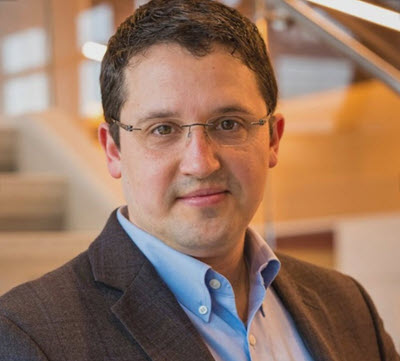by Ian Howell
Published January 15, 2024
Are in-person musical interactions always superior to those online?

I used to spend a huge amount of time on a train from New Haven to Manhattan. As a young singer, I’d travel for coachings, lessons, or rehearsals, leaving my own living room only to sing in a similarly sized room several hours later. For me, there was the opportunity cost: Every two-hour train ride meant two lessons I couldn’t teach. There was also the wear on my body, the resources to run the train, and the cost of the tickets and food along the way. If I could have converted those (non-public) singing experiences into high-quality online interactions, I absolutely would have.
Recently, I recounted this story to a faculty colleague at an early-music graduate program. Their response, as someone with a nice salary, access to campus facilities, and a resident student population: “I enjoy the train ride.”
The desire to send information faster than a human can travel is old. In 1627, Francis Bacon fantasized that, “we have also means to convey sounds in trunks and pipes, in strange lines and distances.” As fantasies transitioned to reality, what was once unavoidable becomes optional. You can take an ocean liner from America to Europe, but the speed of an airplane makes an oceanic time commitment an indulgence. That train ride to Manhattan, if there are other options, can be wonderful or a burden. It’s a sign of how much down time you can afford — or an uncompensated reminder of the low value others place on your time.
It’s important to consider the values governing the choices we make. During the pandemic, the academy was driven by the need to survive rather than the desire to transition to a techno-future. Musicians were particularly impacted by the low-quality and high-latency (or lag time) audio and video in apps like Zoom, although few schools tried to exceed those limitations. Put another way: With rare exceptions, academic programs implemented pandemic solutions that were sufficient but unlikely to overshadow the in-person experience.
Jazz musician David Zoffer calls it locationalist fundamentalism — the belief that in-person musical interactions are inherently superior to those online, regardless of context. Such complacency ignores that we now have the techno-musical equivalent of a telegraph in the age of the Pony Express. When I was younger, you couldn’t play music together online without the lag and poor audio quality that still characterizes Zoom and similar platforms. But today there are low-latency apps, like FarPlay, where it seems like you’re in the same room.
I use these apps every day as a voice teacher and coach, and it is amazing. Some 95 percent of my students are online, and I work with people across North America, Europe, and Asia. By all means luxuriate on that ocean liner, mail that hand-written letter, or read a good book on the train. Enjoy your time if you are able. But we should neither pretend that these are obligatory or cost-free choices, nor should we limit what we teach others to imagine is possible.
For young performers making your way in the world, planning your own tours, paying for your own transit and lodging, understand that one of the following statements is unreasonable: (1) All musical encounters for the rest of your career must occur in person to be meaningful and effective, or (2) we now have multiple ways to interact musically, and we can pick the solution that is financially, logistically, and artistically preferable on a case-by-case basis.
Eschewing locationalist fundamentalism means looking for nuanced solutions. You can get started with a laptop computer (MacOS is easiest), ethernet cable, and headphones. Invest a little money to build a robust home studio with an external microphone and speakers. For the rest of your musical encounters — the lesson with the teacher in another city, the initial rehearsals with your geographically distributed continuo section, your coachings with a conductor, lessons with your students as you attempt to simultaneously nurture a teaching and a performing career — use the low-latency, high-quality online collaboration tools we have.
Your academic mentors will likely never advocate for technology that challenges their institution’s business model. For those without access to campus facilities and a captive residential community, these tools allow you to better manage your resources, cheaply collaborate with others, expand your network of both students and mentors, and demonstrate what is possible to the next generation.
Ian Howell has sung around the globe as a soloist and member of the Grammy-winning ensemble Chanticleer. He has taught applied voice, vocal pedagogy, and Baroque oratorio at the New England Conservatory of Music and now lives and teaches in Ann Arbor, Michigan. His latest book is Advice for Young Musicians.

